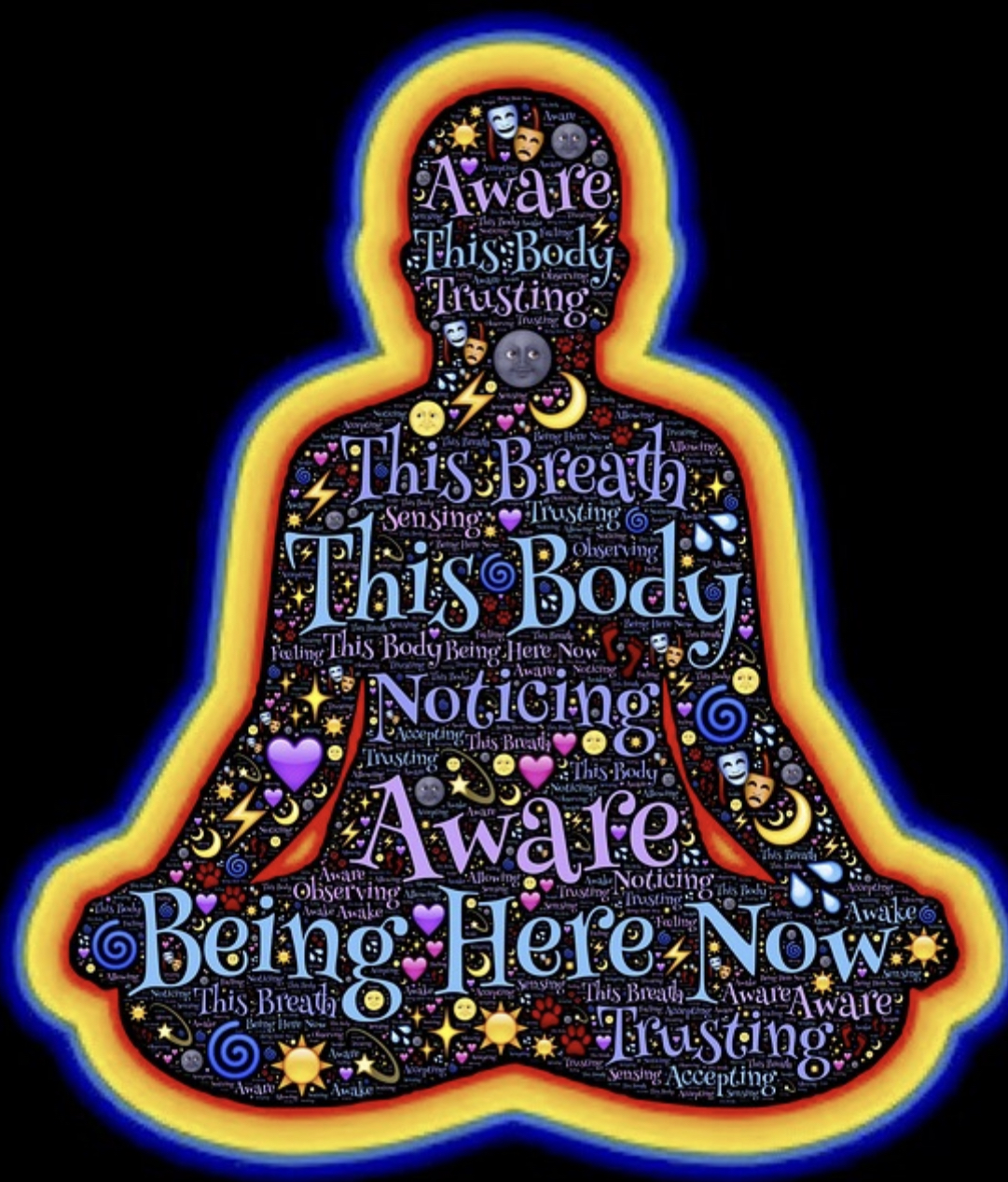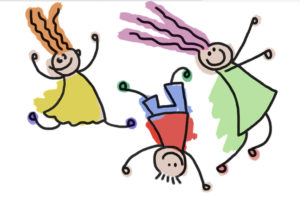Connect with your body

Connect with your body
How well do you know your body and respond to its signals? Years ago, a friend of mine pulled into a restaurant, frustrated with me. “Good grief, Max! Don’t you even know when you need to eat?” She had started recognizing the signs that my body needed food. I would get sluggish, couldn’t think straight, and become quiet as my body ran low on fuel. The answer to her question was, no, I didn’t know when I needed to eat. Nor did I know when I needed to drink, sleep, use the bathroom, rest, or any of the other multitude of activities we do to keep our bodies functioning at their best.
I never learned how to do those things very well. Recognizing and responding to our body’s cues is something we should learn in childhood. In my case, I was often told I was wrong when I told my mom I had a need. If it wasn’t convenient for her to feed me or get a drink for me, her solution was to deny that I was hungry or thirsty. She went further, insisting that she knew my body better than I did. When she took me to the doctor when I was a young girl, I was instructed to just keep quiet and let her handle the discussion. I listened as she made up my symptoms, knowing that if I dared to interrupt and correct her, I would pay for it later. It’s no wonder that I ended up with Functional Neurological Disorder, utterly confused by my body and its signals.
True confession- I’m making up my treatment plan as I go along. I have learned that I am the expert on me. If I recognize something in myself that needs to be addressed, I brainstorm ideas on how to fix the issue. Some of my plans can get a little strange, but that’s okay; I’ve accepted my uniqueness. So far, my self-treatment plan has worked pretty well for me. No one knows my body or my history better than I do. You are the expert on you. Don’t be afraid to try out of the ordinary things to meet your needs.
Recognizing how horribly I had been parented, I decided to re-parent myself years ago. Throughout the day I would pause and check in with what I might need. Any need that I recognized would be met as soon as possible. When I was hungry, I ate. When I was thirsty, I drank. Even if it wasn’t convenient, I would drop what I was doing and attend to my need. One of the things I believe about my FND was that it was a way for my body to get the attention it desperately needed. Note: needing attention is normal and does not mean attention-seeking, an unfortunate term sometimes used by physicians in a way that implies we are making our symptoms up in order to waste their valuable time. We all need positive, affirming attention and should cultivate healthy relationships with others to help meet this need, as well as providing ourselves with attention and nurturance. I have learned that by taking the best possible care of my body and listening to its needs, it no longer has to resort to extreme measures to be heard.
During this period of re-parenting myself, I tried to capture some of the childhood exuberance I had missed. One of my favorite things to do was join the kids in line for the tall, curvy slide at the swimming pool. Swinging on the swings at the park was also fun. My kids, teenagers at the time, would roll their eyes at me when I played. “Mom’s having her second childhood.” “No,” I insisted, “I’m having my first.” Children need to be cherished. They need to be at the center of someone’s universe. If they feel they don’t matter and they aren’t loved, it leaves a terrible void. You have the power to fill the void by discovering your needs and making sure those needs are met. Of course it’s important to consider the needs of other people as well, especially your children if you are in the midst of parenting, but be sure to make your personal needs a priority.

If you are like me and tend to put your needs last, perhaps it’s time to start thoroughly listening to and nurturing your body. How do you take care of a child you love or a beloved pet? You deserve to be taken care of just as well. If you aren’t used to taking care of yourself, it might be helpful to set a timer and check in with yourself every hour or two. How are you feeling? What needs does your body have right this moment? Is there anything that would make you more comfortable? What sounds like fun? Checking in, acknowledging needs and desires, and nurturing yourself lets your body know that it will be cared for. I’ve found that taking care of myself has dramatically reduced FND symptoms.
Staying Present
“Mindfulness” is a buzzword in mental health these days, and with good reason. When we are mindful, we are paying attention to the here and now. Being fully present in our current circumstances helps us remain fully aware of what is going on in and around us. Many of us who grew up in abusive households learned to create an escape from our surroundings using our minds, known as dissociation. Everyone dissociates to some degree. On a long, boring drive, most people “space out” and aren’t fully aware of a lot of the trip. When life becomes too painful, our brains use the escape hatch of dissociation as a way to protect ourselves from the pain. What may have been a helpful, protective mechanism to survive abuse can later get in the way of healthy coping, unfortunately. By using mindfulness, we can minimize the tendency to dissociate. We can fully embrace our surroundings just by paying closer attention.
One of the ways to become more present is by using “grounding” to tie ourselves to our current reality. Grounding is any activity that enhances our physical sensations. There are a lot of different ways that we can do this. One of my favorites is also called “earthing”, literally connecting ourselves to the earth. Try walking barefoot on the grass. Notice all of the sensations in your feet. Feel the cool, prickly grass and notice how solid you feel as gravity holds you to the ground. When I’m inside, I might notice all of the connection points I feel on whatever surface I am resting, especially paying attention to my back, seat, and feet. A weighted blanket can increase this feeling of stability and contact.
Breathing exercises can be grounding as well. Noticing your breath, slowing it down, breathing more into your diaphragm, noticing how your breath feels leaving your nose, counting while you breathe- anything that helps you be more aware of the breath can help you feel more connected to the present moment and can have a stabilizing effect on your nervous system.
Use all of your senses to connect with your environment. When you feel like you’re not completely present, take a look around you. Name 5 things you can see, 4 things you can touch, 3 things you can hear, 2 things that you can smell, and 1 that you can taste. Some people carry a sensory kit with them so that they have things to touch, smell, and taste with them at all times. Even though I don’t believe in any magic power of crystals, I love the way they feel in my hand. I like to collect them and I keep a bowl of them on my nightstand. Frequently I will pick one up, study the facets, feel the coolness and hardness of the stone, and admire its beauty. When I do this, I feel more present and connected to the earth. I feel and appreciate a sense of calmness and contentment.
Because the mirror was so instrumental in my recovery, it’s one of my favorite ways to ground myself. I like to sit on the floor in front of the big mirror in my bedroom. I notice my face, body, and posture. Many times I will stretch and practice yoga poses. Spending time watching my body in the mirror seems to cement my brain’s attachment to the body it directs. I am so grateful that the connection was restored.

Interesting what you say about meeting your needs. The Human Givens approach to mental well being talks A lot about needs being met.
https://www.hgi.org.uk/human-givens/introduction/what-are-human-givens
Here is link
Thanks for the link, Louise. That’s a great article and exactly what I’m talking about. Max